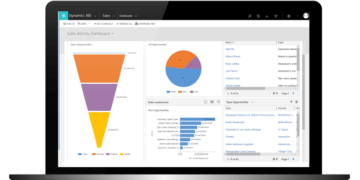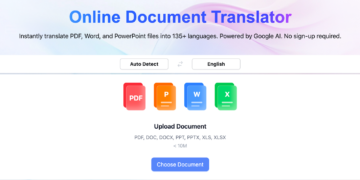Software testing in 2025 looks radically different from just a few years ago. Manual QA processes and traditional scripted frameworks are giving way to intelligent, AI-driven automation tools that think, learn, and adapt continuously. This shift isn’t just about working faster; it’s about fundamentally transforming how quality assurance happens in modern software development.
Efficient, scalable, and error-resistant workflows have become essential rather than optional. Development teams deploy code multiple times daily. Applications grow increasingly complex with microservices, APIs, and distributed architectures. User expectations demand flawless experiences across devices and platforms. Manual testing simply cannot keep pace with these demands, while AI automation tools handle the scale, speed, and complexity that modern development requires.
Manual Workflows in Testing: Limitations
Time-Consuming Script Creation
Manual script creation consumes enormous amounts of engineering time:
- Writing test scripts for single features takes days or weeks
- Every test scenario requires detailed step-by-step coding
- Complex workflows demand understanding of multiple frameworks
- API testing needs separate scripts from UI validation
- Mobile testing requires platform-specific implementations
- Maintenance updates consume 60-70% of automation team capacity
Repetitive Test Case Maintenance
Test maintenance creates perpetual bottlenecks:
- UI changes break hundreds of tests simultaneously
- Element locators require manual updates constantly
- API contract modifications demand script rewrites
- Workflow changes invalidate existing automation
- Version updates introduce compatibility issues
- Teams spend more time fixing tests than creating new ones
Bottlenecks in Coverage
Regression and exploratory testing face severe constraints:
- Comprehensive regression suites take hours or days to execute
- Manual exploratory testing cannot scale across platforms
- Edge cases and unusual workflows get skipped due to time pressure
- Integration testing between systems remains incomplete
- Cross-browser validation covers only major configurations
- Mobile device testing limited to available physical hardware
Human Error and Inconsistency
Manual processes introduce reliability problems:
- Testers miss steps during repetitive execution
- Inconsistent test data causes unreproducible results
- Documentation falls out of sync with actual tests
- Different testers validate same features differently
- Subjective interpretation leads to missed defects
- Fatigue during long test sessions reduces effectiveness
Slow Feedback Cycles
Delays in feedback harm development velocity:
- Test results arrive hours or days after code commits
- Developers lose context by the time bugs get reported
- Integration issues discovered late in development cycles
- Regression defects found only during pre-release testing
- Production incidents reveal gaps in validation coverage
Scaling Challenges
Manual approaches cannot meet modern development speed:
- Agile sprints compress testing windows severely
- DevOps continuous delivery demands instant validation
- Microservices multiplication increases testing scope exponentially
- Cloud-native architectures require validating numerous configurations
- Global teams need 24/7 testing capacity
- Resource constraints limit parallel testing capability
AI Automation Tools: Core Capabilities
Natural Language Test Case Generation
Code-free, business-readable scenario creation transforms testing:
- Product managers write “Verify users can checkout with discount codes”
- AI generates comprehensive test covering cart, payment, and confirmation
- Business analysts create scenarios without programming knowledge
- Domain experts document workflows in plain English descriptions
- Manual testers automate their knowledge without technical barriers
- Test creation time drops from days to minutes dramatically
Self-Healing Automation
Dynamic adaptation eliminates brittle locators and manual fixes:
- Scripts adapt automatically when UI elements relocate or rename
- API response validation updates when contracts evolve
- Workflow changes don’t break existing automation
- Multiple identification strategies provide resilience
- Element context, visual appearance, and function guide adaptation
- Maintenance effort reduces by 60-80% immediately
Predictive Defect Analytics
ML models forecast risk and guide intelligent testing:
- Code complexity analysis identifies defect-prone areas
- Change frequency patterns predict where bugs will appear
- Historical defect data trains models for accurate forecasting
- Risk scores prioritize test execution automatically
- Silent regressions get spotted before reaching production
- High-risk areas receive proportionally more validation
Test Optimization and Scheduling
Automated selection and smart parallelization maximize efficiency:
- Intelligent selection runs only relevant tests per code change
- Redundant tests get eliminated automatically
- Parallel execution distributes across cloud infrastructure
- Test duration predictions optimize scheduling
- Dependency analysis ensures proper execution order
- Continuous execution integrates seamlessly with CI/CD pipelines
Auto-Reporting and Actionable Insights
AI-driven dashboards deliver business-aligned intelligence:
- Root cause analysis identifies why tests failed automatically
- Coverage maps show tested vs untested application areas
- Risk assessments highlight critical gaps requiring attention
- Trend analysis reveals quality trajectory over time
- Business impact translations connect technical results to outcomes
- Stakeholder-specific views serve different information needs
How AI Automation Tools Replace Manual Tasks
Automate Test Lifecycle Completely
Creation, updates, and execution happen without manual intervention:
- Tests generate automatically from requirements and code analysis
- Updates apply when applications evolve without human coding
- Execution schedules optimize based on risk and resources
- Results collect, analyze, and report without manual compilation
- Defect tickets create automatically with detailed diagnostics
Enable Continuous Quality Gates
Autonomous validation protects every code change:
- Every commit triggers relevant automated testing immediately
- Quality gates prevent merging code that breaks functionality
- Deployment pipelines include comprehensive validation checkpoints
- Production releases happen only after thorough AI validation
- Risk assessment determines when human approval becomes necessary
Identify and Fill Coverage Gaps
Continuous analysis ensures comprehensive validation:
- AI discovers untested code paths automatically
- Missing scenarios generate based on user behavior analysis
- Edge cases get identified through data combination exploration
- Integration points receive systematic validation
- Coverage metrics track improvement over time visibly
Free QA for Strategic Work
Teams redirect effort toward high-value activities:
- Exploratory testing uncovers unexpected issues creatively
- Business risk validation ensures critical workflows function
- Creative quality assurance explores user experience nuances
- Compliance validation verifies regulatory requirements
- Strategic test planning guides overall quality initiatives
Leading AI Automation Platforms in 2025
KaneAI by LambdaTest
GenAI-native test agent transforming automation completely:
Plain English Test Authoring:
- Natural language descriptions become executable automation
- “Verify checkout completes with saved payment method” generates full test
- Product managers and business analysts create tests directly
- No programming knowledge required for comprehensive automation
Smart Test Planning:
- AI analyzes applications and suggests critical test scenarios
- User journey mapping happens automatically from analytics
- Risk assessment prioritizes most important validations
- Coverage gaps identified and recommendations provided
Self-Healing Automation:
- Tests adapt to UI changes without manual script updates
- Element identification uses multiple resilient strategies
- API contract changes handled automatically
- Workflow modifications don’t break existing automation
Deep Analytics:
- Intelligent failure analysis identifies root causes automatically
- Predictive defect models highlight high-risk areas proactively
- Coverage dashboards show validation completeness clearly
- Trend analysis reveals quality improvements or degradations
Comprehensive Device/Browser Coverage:
- Cloud access to 3000+ browser and device combinations
- Real device testing on actual iOS and Android hardware
- Parallel execution across configurations simultaneously
- Cross-platform validation ensures consistent experiences
Seamless Integration:
- CI/CD pipeline connections trigger tests automatically
- Test management systems receive results in real-time
- Defect trackers create tickets with diagnostic information
- Collaboration tools notify teams of important changes
Multi-Layer Automation:
- UI testing validates user interfaces comprehensively
- API testing checks backend services thoroughly
- Mobile testing covers iOS and Android platforms
- Web testing spans all major browsers and versions
Tricentis Tosca
Tricentis brings model-based AI testing capabilities:
Model-Based Test Automation:
- AI analyzes application models for comprehensive coverage
- Risk-based testing prioritizes critical scenarios
- Change impact analysis identifies affected tests automatically
Vision AI:
- Visual validation using computer vision technology
- Layout verification across different screen sizes
- UI regression detection through intelligent comparison
Autonomous Testing:
- Self-learning algorithms optimize test execution
- Continuous testing integration with DevOps pipelines
- Predictive analytics guide testing strategies
Virtuoso
Virtuoso offers AI-powered no-code testing:
Natural Language Authoring:
- Plain English test creation without coding
- AI understands intent and generates appropriate actions
- Business-readable test scenarios for collaboration
Self-Healing Tests:
- Automatic adaptation to application changes
- Intelligent element identification strategies
- Reduced maintenance overhead significantly
Intelligent Execution:
- Smart test scheduling based on risk
- Visual regression testing capabilities
- Cross-browser and mobile testing support
Functionize
Functionize delivers autonomous testing through AI:
Adaptive Testing:
- Machine learning adapts to application changes
- Self-maintaining test suites require minimal updates
- Natural language processing for test creation
Root Cause Analysis:
- AI identifies why tests fail automatically
- Detailed diagnostics accelerate debugging
- Pattern recognition spots recurring issues
Intelligent Scaling:
- Cloud-based execution infrastructure
- Parallel test runs optimize speed
- Dynamic resource allocation
ACCELQ
ACCELQ provides codeless automation with AI intelligence:
Autonomous Test Design:
- AI-powered test case generation from requirements
- Business logic-driven automation approach
- Self-healing capabilities reduce maintenance
Intelligent Test Management:
- Impact analysis for code changes
- Risk-based test prioritization
- Continuous testing integration
Multi-Layer Testing:
- API, web, and mobile testing unified
- End-to-end workflow validation
- Cross-platform consistency checking
Qyrus (formerly Cynoteck)
Qyrus brings AI-driven quality engineering:
Intelligent Test Generation:
- AI creates tests from application analysis
- Risk-based prioritization guides coverage
- Continuous learning improves effectiveness
Self-Healing Automation:
- Adaptive locators handle changes automatically
- Minimal maintenance requirements
- Cross-platform support
Analytics Dashboard:
- Real-time quality insights
- Predictive defect analysis
- Business-aligned reporting
Best Practices for Transitioning to AI Automation
Identify High-Maintenance Flows
Start with areas causing most manual pain:
- Tests breaking frequently from UI changes
- Scenarios requiring extensive maintenance effort
- Critical workflows deserving comprehensive automation
- High-value features with significant business impact
- Repetitive regression tests consuming team capacity
Pilot Code-Free Creation
Test AI capabilities with focused initiatives:
- Select 5-10 scenarios for initial AI automation
- Compare AI-generated tests against manual versions
- Measure time savings and maintenance reduction
- Gather team feedback on usability and effectiveness
- Build organizational confidence through demonstrated value
Embed in CI/CD Pipelines
Integrate for continuous automated validation:
- Connect AI platforms to existing CI/CD tools
- Configure quality gates based on test results
- Trigger automated testing on every code commit
- Enable deployment blocking for critical failures
- Provide rapid feedback to development teams
Monitor Dashboard Insights
Use analytics for continuous improvement:
- Review coverage metrics identifying gaps regularly
- Analyze failure trends revealing problem areas
- Track risk assessments guiding resource allocation
- Study predictive models validating accuracy
- Adjust AI parameters based on observed results
Maintain Human-AI Balance
Blend automation with exploratory expertise:
- AI handles repetitive validation at scale
- Humans explore creative testing scenarios
- Compliance validation includes manual review
- Ethical considerations require human judgment
- Strategic quality decisions involve team expertise
Future of QA Workflows
Autonomous Pipeline Orchestration
Complete automation from planning through deployment:
- AI agents manage entire testing lifecycles independently
- Test strategies adapt to code changes automatically
- Validation executes without human triggering
- Results analyze and report with recommendations
- Deployment decisions happen based on quality thresholds
Proactive Risk Management
Quality problems prevented before they manifest:
- Code analysis predicts defects before testing begins
- User behavior changes trigger relevant validations
- Production monitoring informs testing strategies
- Predictive models prevent issues proactively
- Real-time risk assessment guides all decisions
Expanded Quality Dimensions
AI validates beyond functional correctness:
- Accessibility testing ensures inclusive experiences automatically
- Security validation identifies vulnerabilities proactively
- Performance testing confirms acceptable response times
- User experience assessment evaluates satisfaction
- Compliance checking verifies regulatory adherence
Enhanced Collaboration
AI facilitates better team coordination:
- Copilots assist testers with suggestions and guidance
- Natural language interfaces enable broader participation
- Transparent explanations build trust in recommendations
- Shared dashboards align stakeholders on quality status
- Knowledge capture preserves expertise organizationally
Explainable AI Decisions
Transparency builds confidence in automation:
- Clear reasoning documents why tests prioritized
- Evidence supports defect predictions and risk scores
- Audit trails track all automated decisions
- Human reviewers validate AI recommendations
- Compliance requirements met through explainability
Conclusion
AI driven test automation fundamentally transforms QA workflows by replacing slow, error-prone manual tasks with resilient, intelligent solutions that adapt continuously. Manual scripting that once consumed weeks happens in hours through natural language generation, brittle tests that broke constantly now heal themselves automatically, and defects that escaped to production get predicted and prevented proactively.
The optimal future blends autonomous AI workflows handling repetitive validation at scale with targeted human creativity providing exploratory testing, strategic quality leadership, and ethical oversight that machines cannot replicate.
Teams embracing this balanced approach position themselves for sustained competitive advantage through superior software quality, accelerated time-to-market, reduced operational costs, and the organizational agility to respond rapidly to changing business needs while maintaining the comprehensive quality validation users expect and businesses require for success in digital markets where software quality directly impacts revenue, reputation, and long-term customer relationships.













